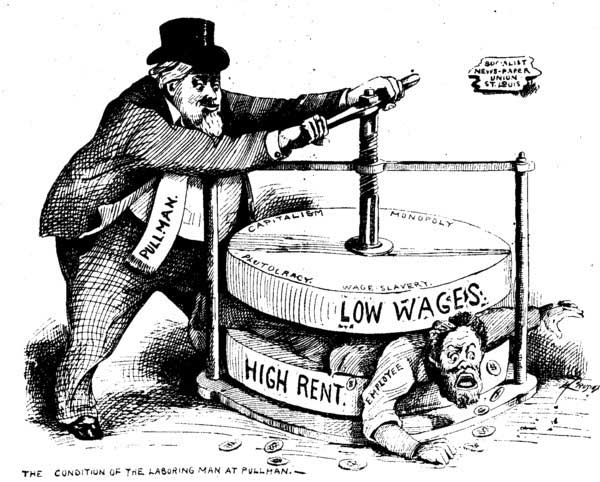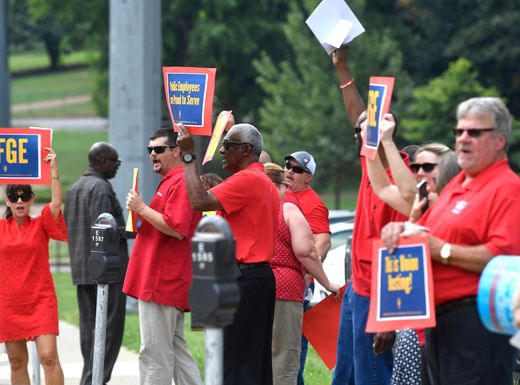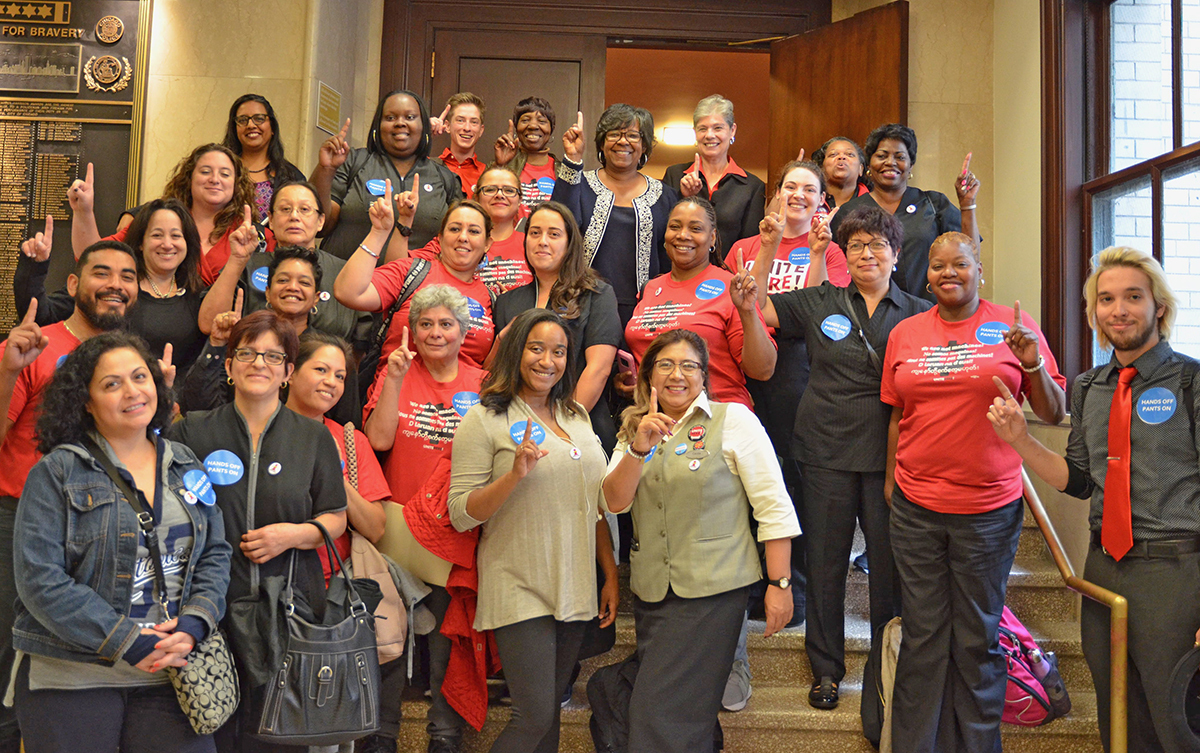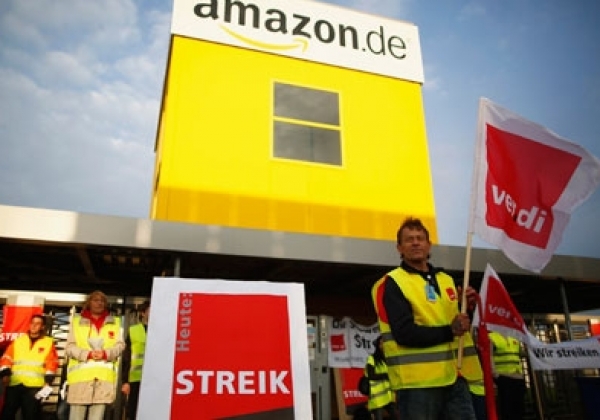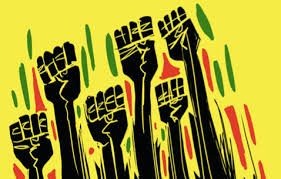By Gavrielle Gemma
Trump’s goals are to: 1. ensure that the 1% get richer, no matter how many wars it takes, 2. make workers all over the world (including in New Orleans) poorer and poorer, and 3. give the private military corporations more of our federal tax budget (they already get handed $1 trillion).
A new tool in his arsenal of threats are trade wars. He and his filthy rich buddies try to make it seem like this will protect “U.S. jobs.” This is a lie! First off, the capitalists don’t care about workers or our jobs. Use us, discard us and pay the cheapest wages is all they know. He is attempting to build false patriotism about this, but as always under capitalism patriotism is used to defend wars and racism. This is not just “one country under god” but a class society with the workers and oppressed on one side and the capitalists on the other.
Trump thinks we can’t figure out the confusing trade wars issue as we are “just workers.” In the 1980’s the auto industry whipped up a “buy American cars” campaign to save the industry and workers’ jobs. This did boost profits, but they still demanded concessions meaning lower wages and fewer benefits. But this wasn’t enough for their greed. The labor of the auto workers produced so much wealth (not given back to them or their communities) that they used it to bring in high tech machinery and to move their plants overseas. The result was the loss of hundreds of thousands of jobs.
Trump just announced he will take $15 billion of tax payer money to give to agribusiness corporations because of lost exports due to his trade wars. Farm workers will see none of this money when they get laid off. Just like when Bush and Obama bailed out the banks but not workers who lost their jobs and homes.
Don’t believe us? Here what Money magazine has to say: “A group representing the solar industry says that the Trump administration’s decision to increase taxes on imported solar panels will cause the loss of 23,000 jobs this year, with more job cuts in the years ahead. The Council on Foreign Relations estimates that Trump’s 25% tax on imported steel would cause 18,000 to 40,000 auto-industry job losses in the U.S. by the end of next year. A study from the American Action Forum indicates that a 25% tax on imported cars and auto parts would result in “a net decrease of 157,000 jobs.” The Wall Street Journal reports that 2.5 billion pounds of U.S. beef is piling up in cold storage waiting for buyers due to new tari s on U.S. exports. Around the world millions of workers are also being displaced from their land and jobs.
The capitalist system is threatening all our lives. It is wildly murdering people in wars around the world, stealing our treasuries, impoverishing and incarcerating our people right here and still it cannot solve its internal problems. The working class produces the world’s wealth which the capitalists waste on their economic and military wars. We workers of the world urgently need to unshackle our minds and start to organize to overthrow the capitalist system. The stockpiling of food and other goods is proof that there is enough in the world for all people, and under socialism the people of the world will share in this abundance.

2.5 billion pounds of meat sit in cold-storage warehouses across the country. Nearly 13 million children in the United States suffer from hunger, while corporations hoard meat to keep prices high.

